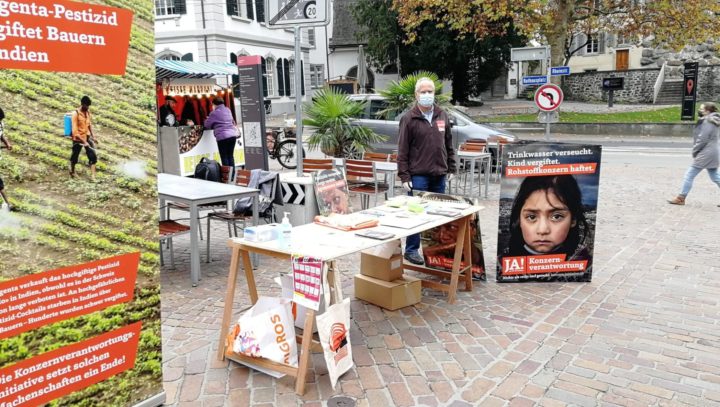Switzerland missed two opportunities to move towards a more just world. Last weekend, Swiss voters voted on two referendums, both of which were rejected.
The first referendum question, a popular initiative “For responsible companies – to protect human beings and the environment”, actually collected a majority of “Yes” (50.73%), but only a minority of cantons approved it, while for this type of referendum a majority of both votes and cantons is required. It was mainly the small cantons of German-speaking Switzerland that voted against it, while the referendum won the majority in the large cities, French-speaking cantons and Ticino.
This referendum called for Swiss companies to be obliged to ensure that their business activities respected human rights and environmental standards even when carried out abroad. They would have been forced to monitor not only their own businesses but also those of their subsidiaries, their suppliers and their business partners.
Swiss-based multinationals are often involved abroad in toxic waste scandals that cause serious illness,
inhuman working conditions in textile factories and child labor in cocoa plantations. In order to prevent this and to empower the companies concerned, the referendum would have introduced binding rules and sanctions. Voluntary measures, which already exist, are absolutely insufficient. The referendum therefore aimed for consistency and would hold Swiss-based companies accountable before the law if they allowed children to work, polluted rivers or practiced land grabbing by driving indigenous peoples off their lands.
According to Amnesty International Switzerland, “Switzerland has lost the opportunity to impose effective rules for the protection of human rights and the environment on the many large international companies operating in the country. However, the people’s choice is a historic success. This is a clear appeal from the majority of voters to the Federal Council and the Parliament: human rights violations by Swiss companies abroad can no longer be tolerated!”
The second referendum question concerning the “Ban on financing war material producers” was rejected by the majority of voters (57.45%). Only in the canton of Basel and in three cantons of French-speaking Switzerland, which is generally more progressive, did the proposal obtain a majority of yes.
The initiative, launched by the Green Party and the Group for a Switzerland without an Army (GswA) would have prohibited the Swiss National Bank, foundations and pension funds from investing in companies that generate more than five percent of their turnover in the production of war material. Billions of francs are invested annually by the Swiss financial center in the war sector. The initiative also sought to ensure that banks and insurance companies were subject to the same conditions.
Current Swiss law prohibits the development, production or direct purchase of prohibited war material, a category which includes nuclear, biological or chemical weapons, anti-personnel mines and cluster bombs. However, there is a loophole in the law regarding the indirect financing of this material, which is practiced on a large scale. Swiss investments in the nuclear weapons sector are immense and constantly growing (almost 8.3 billion euros in 2018).
Translation by Ilaria Cuppone, from the voluntary Pressenza translation team. We are looking for volunteers!






